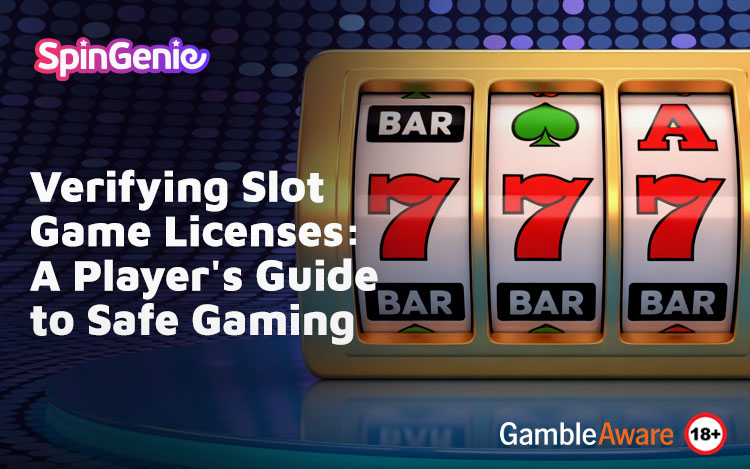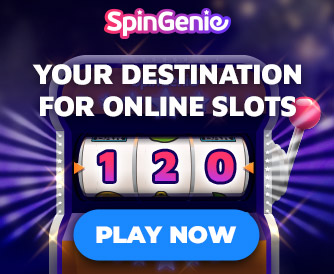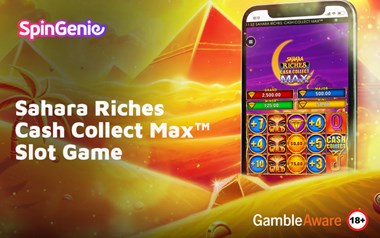When playing online slots UK, one of the most important safety measures players often overlook is verifying game licenses. Unlike physical slot machines in regulated casinos, online slots operate in a digital landscape where not all providers maintain the same standards of fairness and security. Understanding how to properly check slot licenses ensures you're playing games that have been independently tested for fairness and operate within strict regulatory frameworks.
This comprehensive guide will walk you through every aspect of slot game licensing, from understanding why it matters to recognizing the signs of properly licensed games. We'll explore how different jurisdictions regulate slots, what certification marks to look for, and how licensing protects players. Whether you're new to online slots or a seasoned player looking to play slots securely, this knowledge forms the foundation of safe online gambling practices.
Why Slot Game Licensing Matters
Licensed slot games undergo rigorous testing by independent auditing agencies to ensure their Random Number Generators (RNGs) produce truly random outcomes. These tests verify that advertised Return to Player (RTP) percentages are accurate and that bonus features trigger as promised. Without proper licensing, there's no guarantee that games haven't been manipulated to favor the house unfairly.
Licensing also ensures that player funds are protected and that casinos have mechanisms in place for responsible gambling. Reputable licensing bodies require operators to segregate player funds from operational accounts, implement self-exclusion programs, and provide clear terms for withdrawals. These protections disappear when playing unlicensed games, putting both your money and personal information at risk.
Legal Recourse and Dispute Resolution
Another critical aspect of licensed slots is the availability of formal complaint channels. Major licensing authorities like the UK Gambling Commission and Malta Gaming Authority operate independent dispute resolution services. If you encounter issues with payouts or game fairness at a licensed casino, you have official avenues to pursue your complaint. Unlicensed operators typically offer no such protections, leaving players with little recourse when problems arise.
Prevention of Fraud and Money Laundering
Licensed slot providers and casinos must implement strict anti-fraud and anti-money laundering measures. This includes identity verification procedures that, while sometimes inconvenient for players, create a safer gaming environment for everyone. Unlicensed operations often skip these checks, making them attractive to criminal elements and increasing risks for legitimate players.
How to Check Slot Game Licenses
Identifying Licensing Information
Legitimate online slots display their licensing information prominently, typically in the game's information or help section. Look for details about:
- The game developer's license
- The casino operator's license
- Testing agency certifications
This information should include license numbers and clickable links to verify them on the regulator's official website. Be wary of games that only display generic statements about fairness without specific licensing details.
Understanding Different Licensing Jurisdictions
Not all gaming licenses carry equal weight. Some jurisdictions have stricter requirements than others:
UK Gambling Commission (UKGC): Considered the gold standard, UKGC-licensed games undergo the most rigorous testing. The Commission regularly audits licensees and maintains a public register of all approved operators.
Malta Gaming Authority (MGA): Another highly respected regulator, the MGA licenses many major software providers. While their requirements are slightly less stringent than the UKGC's, they still maintain high standards.
Gibraltar Regulatory Authority: Known for licensing many established operators, Gibraltar's standards are generally good though not as comprehensive as the UKGC.
Curacao eGaming: This is the most common license among smaller operators. While better than no license at all, Curacao's oversight is minimal compared to other jurisdictions.
Verifying License Authenticity
Simply seeing a license logo isn't enough - savvy players should verify licenses independently. Most regulatory bodies maintain online databases where you can check if a license number matches the claimed operator. Look for:
- Consistency between the game provider's claimed license and the casino's license
- Current status (not expired or suspended)
- That the license covers the specific type of gaming being offered
Be particularly cautious of operators using "licensed" imagery without providing verifiable license numbers - a common tactic among disreputable sites.
Red Flags: Signs of Unlicensed or Problematic Slots
Lack of Transparency
Games or casinos that make it difficult to find licensing information should raise immediate concerns. Legitimate operators proudly display their credentials, while questionable ones often bury this information or present it in misleading ways. If you have to dig through multiple pages to find license details, consider it a warning sign.
Unrealistic Promises
Unlicensed operations frequently lure players with promises of guaranteed wins or unusually high RTP percentages. Remember that licensed slots must provide accurate RTP information, typically ranging between 94-97% for most games. Claims of RTPs significantly higher than this range should be viewed skeptically.
Poor Quality Control
While not definitive on its own, shoddy presentation can indicate unlicensed games. Look for:
- Grammatical errors in game text
- Poorly rendered graphics
- Buggy or inconsistent gameplay
- Missing or incomplete help sections
Licensed developers invest heavily in quality assurance, so consistently poor production values may suggest an unregulated product.
Absence of Responsible Gambling Tools
All licensed UK operators must provide robust responsible gambling features like deposit limits, timeout options, and self-exclusion. The lack of these tools strongly suggests an unlicensed operation that doesn't prioritize player protection.
For more information on how to spot fake slot machines, see our dedicated guide on recognizing fraudulent games.
The Testing and Certification Process
Independent Testing Laboratories
Reputable slot developers use third-party testing agencies to verify their games' integrity. Well-known testing organizations include:
- eCOGRA (eCommerce Online Gaming Regulation and Assurance)
- iTech Labs
- Gaming Laboratories International (GLI)
- BMM Testlabs
These organizations test RNGs, verify RTP percentages, and ensure games meet jurisdictional requirements. Their certification seals should be visible in the game's information section.
What Gets Tested
The certification process examines multiple aspects of slot functionality:
- Random Number Generation: Ensuring outcomes are truly random and unpredictable
- Return to Player: Confirming the game pays out at the advertised rate over millions of spins
- Game Rules: Verifying that all rules and paytables are implemented correctly
- Security: Checking that the game can't be tampered with or hacked
This comprehensive testing gives players confidence that licensed games operate fairly as described.
Frequency of Audits
Licensed games don't just get tested once - reputable regulators require regular re-testing to maintain certification. The UKGC mandates annual audits at minimum, with many operators choosing more frequent testing. This ongoing oversight helps catch any potential issues that might emerge after initial certification.
Player Responsibilities in License Verification
Research Before You Play
Smart players investigate both the casino and game provider before depositing money. A quick internet search can reveal:
- Regulatory actions against the operator
- Player complaints about unpaid winnings
- History of the software provider
Reputable operators and developers will have established track records you can verify through independent review sites and gambling forums.
Understanding Terms and Conditions
While often tedious to read, a site's terms and conditions contain important information about licensing and dispute resolution. Pay particular attention to:
- Jurisdiction for legal matters
- Withdrawal policies and limits
- Bonus wagering requirements
Unreasonable terms may indicate an operator trying to take advantage of players, regardless of their licensing status.
Reporting Suspicious Activity
If you encounter potentially unlicensed or fraudulent games, report them to the relevant gambling authority. In the UK, the Gambling Commission investigates all player complaints and can take action against bad actors. Your reports help protect other players and maintain industry standards.
The Future of Slot Licensing
Emerging Technologies
New technologies like blockchain are creating alternative verification methods. Some developers now provide:
- Provably fair algorithms that let players verify individual spin results
- Smart contract-based payout systems
- Transparent RNGs that maintain privacy while allowing verification
While these innovations show promise, they currently complement rather than replace traditional licensing systems.
Increasing Regulation
Many jurisdictions are tightening slot regulations, particularly around:
- Maximum spin speeds
- Loss limits
- Bonus buy features
Players can expect more standardized licensing requirements globally as regulators collaborate to improve consumer protections.
Player Education Initiatives
Recognizing that many players don't understand licensing, regulators and responsible operators are investing in education campaigns. These efforts help players make informed choices and recognize red flags before problems occur.
Conclusion
Verifying slot licenses might seem like an extra step, but it's fundamental to safe online gambling. Licensed slots provide assurance of fair outcomes, financial protections, and access to dispute resolution when needed. By taking the time to check licenses and understand what they represent, players can enjoy online slots UK with greater confidence and security.
Remember that licensing is just one aspect of safe play. Combine license verification with other responsible gambling practices like setting limits, taking breaks, and never chasing losses. Whether you're looking to play slots securely or want to avoid problematic operators, understanding slot licensing gives you the tools to make better decisions about where and how you play.
The gambling landscape continues to evolve, but one constant remains: licensed, regulated games provide the safest, fairest experience for players. By making license verification part of your routine, you protect yourself while supporting the ongoing improvement of industry standards.













